SUMMARY
This is AI generated summarization, which may have errors. For context, always refer to the full article.

This compilation was migrated from our archives
Visit the archived version to read the full article.
Illustrations by Geloy Concepcion Design by ANALETTE ABESAMIS and DOMINIC TUAZON
Rappler’s series of
Here, in The Demonized, the second installment, we examine the worst versions of candidates running for president, as imagined by their critics. These profiles condense the range of commentary from political opponents, interest groups, columnists, as well as the grievances that populate both online and offline conversations. We hope to make sense of what frightens, what offends, and what angers a nation in search of a leader.
Welcome to the badlands. The peace is broken. No citizen is safe. It is a country of weeping mothers and lost little boys, where teenagers bleed to death at car washes and 50-year-old fathers are shot point-blank – through the cheek, between the eyes, straight through the chest into the beating heart. Children are killed. Wives are killed. Every petty thief and his brother are out on the run, and so is every friend who ever said hello.
This is the Republic of the Philippines, on its knees before the barrel of Rodrigo Duterte’s gun. Keep your head down, step carefully inside the line, tell your momma never fight back. The big man is in town and his thugs are armed to the teeth. You can die anytime, and not even the Pope can keep you safe.
See him, all swagger and snark, an aging Johnny Bravo flexing his muscles before an adoring crowd. See him lock lips with supporters, watch him thrust out his tongue, look at him grin with a woman on his lap. Eat the bullet, swallow the cigarette, chew through the papers, pray his bully boys remember you never said a word. This is the man who says what he means and means what he says, but will blame his dick when he cheats and criminals when they die.
See him, watch him, howling through the night in a roar of chrome and steel. Tell your boys run. Tell your women hide. Get out, steer clear, and God help the fuckers who get in the way.
‘It’s going to be bloody’
Look at Davao, he said, his “exhibit A.” There are no drugs, there is no crime, a woman can walk one end to another without fear of harassment – unless maybe Duterte thinks she’s too “delicious” to let by.
And yet Davao is neither drug-free nor crime free. Duterte’s own daughter admitted the drug trade is rising. Accused by former interior secretary Mar Roxas of failing to end the drug scourge, he hit back at Roxas instead, calling him pathetic, saying it was Roxas’ fault, not his.
But he concedes the crime incidence – Davao has the fourth highest in the country.
“I do not deny that, the figure,” Duterte told dzMM. “But ask who is dying.”
Those who die, he said, are those “who should die.”
He is careful to describe only the worst of the criminals – the man who raped the 16-month-old baby, the kidnapper on a killing spree, the armed jailbirds who shot down a missionary. The circumstances of their deaths, and those whose deaths he claims to have ordered, with the exception of a few, are left to the imagination.
They are left nameless – thieves and kidnappers, rapists and robbers, drug lords who are all armed and “psychotic,” addicts who are “paranoid and hallucinated all the time,” all of them a plague on society and are “fucking making the life of the Filipino miserable.”
But the criminals “who should die” and did die in Davao have names, families, and are often as poor and neglected as the victims that Duterte has promised to protect. Human Rights Watch reports that the victims of the death squad that has allegedly operated in Davao under Duterte or his family”s mayorships are small-time dealers, young pickpockets, street children wandering the plazas barefoot, the uneducated, and unemployed sons of families who cannot fight back.
“Who are the big men that you’ve killed? Who are the powerful men that you’ve gone against?” asked Mar Roxas at the second presidential debate. It was a legitimate question. “You don’t know,” said Duterte, “because you know nothing.”
“That’s the trouble,” he said. “If you don’t know how to kill people and are afraid to be killed, you cannot be president.”
In 2001, the police attempted to arrest an 18-year-old named Richard Alia. His mother Clarita resisted the arrest, demanding to see a warrant. She was warned by police all 4 of her sons would die if she didn’t give up Richard. Richard was stabbed to death in the weeks after. He was followed by 17-year-old Christopher, 14-year-old Bobby, and 15-year-old Fernando. All 4 were murdered, one after another.
Victims sometimes died because they were standing in the same room, or sitting in the same taxi, or had the same features as the supposed criminal marked in the order of battle. The Coalition Against Summary Executions (CASE) in Davao said that of the 469 murdered by death squads or hired killers in the city between 1998 until 2005, 12 were killed in cases of mistaken identity.
In 2005, Davao Today reported how Duterte regaled guests with the story of how he had used a piece of firewood to crush the hands of a man accused of stealing radios. He then admitted he had punished the wrong man.
“Duterte laughed out loud when he narrated this story one evening last week during dinner with friends and journalists,” said the report. “He used the story to drive home the point that he hates thieves and criminals with passion.”
Asked about the minors killed in Davao City, Duterte stammered. “That”s a collateral social problem. It becomes a collateral…collateral itself. Its not a question of crime anymore. That’s what makes things difficult. Well, that is another problem. I cannot answer that.”
‘Am I the death squad? True. That is true.’
For a man who is celebrated for his brutal honesty, the Punisher of Davao is remarkably circumspect about the number of men who he claims died at his hands. He is no longer certain exactly how many people he has killed. Sometimes he says 3 – or 3 last month – sometimes he says 16, or sometimes he”ll swing as high as 1,700. Sometimes he can’t remember, because he “may have dreamed up some of them.”
He has killed “many,” he says. But in interviews, under the glare of the media spotlight, he is careful to say he has never violated human rights, although he has admitted the existence of the Davao Death Squad. He doesn’t kill criminals, only criminals who resist arrest. But he had no such qualms when he ran his fiefdom in the south.
“If you are doing an illegal activity in my city,” he told the Inquirer in 2009, “if you are a criminal or part of a syndicate that preys on the innocent people of the city, for as long as I am the mayor, you are a legitimate target of assassination.”
“Kill them all,” he recently told a cheering crowd in Lingayen. “When I become president, I”ll order the police and the military to find these people and kill them.”
Duterte says he will protect troops when they kill criminals. He advises police to hack bodies of drug lords and throw them into the sea to avoid exhumation – “I am giving you the finer points on how to kill criminals.” It is a slippery slope. No matter how often he denies it, the dogs of war that he will let loose have been told the enemy must be put down. What stops a soldier from shooting down a terrified 13-year-old too scared or too stupid to drop a knife? Which policeman, in pursuit of a local official moonlighting as a drug baron, will hold back after the president says, “If you don’t kill that mayor, I’ll kill you?”
“You know, guilt is personal,” he said in 2005. “Remember that it’s a principle of criminal law. Guilt is personal. There is no guilt by association just because I’m the mayor talking here nonsense. Each time I threaten them, there”s always a qualification: “You terrorists, fuck you, I’m going to kill you! As you see, they end up dead.”
Duterte proposes killing 5 criminals a week – a low number if he is to kill the 50,000 he promised in 6 years. His claim to be an enforcer of the rule of law smacks of hypocrisy when held side by side with his contempt for the legal process. He may claim benevolence, but it is unreasonable to assume he will be able to wield almighty control over the entire country, even while rules are loosened for his underlings to operate using a rhetoric of force.
“Five months ago, I ordered a crackdown because there was word drugs had come in,” Duterte said. He said he gave his men orders to “hit” the alleged drug dealers. Seven were killed.
“If you arrest them,” he added, “the law will just let them out.”
There is no interpretation of the constitution that Rodrigo Duterte can use to justify the salvaging of citizens of the republic, criminals or otherwise, with or without trial, unless he declares martial law – and he will declare it, he says, only he won’t be a dictator, but “like a dictator.” And if his rule is cut short, he will choose as replacement the son of a dictator who believes martial law was a glorious adventure, even while asking the crowd to vote for Alan Peter Cayetano.
Demagogue
In the beginning, Duterte was the joker in the deck, not quite part of the game but in the shuffle all the same. There he was, threatening to slap the interior secretary – and laughing at Roxas for his third stop in the bathroom – cursing the pope, asking kisses from young photographers, rambling about motel rates and Viagra, dismissing lasciviousness charges with a shrug and smirk. “The woman was really very, very beautiful,” he said, “that if you do not touch her, you will die. I was just saving my life.”
He promises to fix the country, but says little about processes and particulars. Federalism will end decades of conflict, but he offers no other option if the public refuses a federal state. His methods, what little he offers, have the same bare-hands sophistication as a baseball bat slammed into a car windshield. If Congress threatens him with impeachment, he will “close it down.” If generals “fuck with me,” he will make them resign. He will run over jaywalkers, feed cigarettes to smokers shove bullets down the throats of airport personnel, terrify executives to speed up the Internet, and bomb their cellular sites if they refuse.
His timetable makes the entirety of his campaign of deliverance as ridiculous as a get-rich-quick Ponzi scheme that claims prosperity in 3 to 6 months. The mechanisms are vague, whether they involve wholesale killing sprees, threats to undesirables to leave his territory or the railroading of democratic procedure. While Mar Roxas and Grace Poe and Jejomar Binay explain their programs of government, Duterte nonchalantly says he will implement their programs, but will do it better.
Duterte’s only guarantee is his word, but he is impossible to pin down. Talk is cheap for the man from Davao. Find them and kill them, he says one day. Stop them and try them, says another. His principles shift with the size of the crowd, he was only sarcastic, he will say, he was annoyed, he will explain.
Asked, at an ambush interview, if he was willing to kill even civilians without due process, he said, it was possible. A member of his campaign team moved the mayor away – “He was kidding, he was kidding.”
He is accountable to no one but himself. His apologists often claim the good mayor speaks in hyperbole. His decrees are subject to the interpretation of his vice
“We achieved the same results in Naga,” she said. “The peace and order, the discipline among the people – we achieved the same things without [Duterte”s] kind of attitude.”
It is an effective campaign – and lends itself to a dangerous fanaticism. When a student from the University of the Philippines, Los Baños asked a question in a public forum, he was lynched online. Regardless of what may or may not be construed as disrespect from Stephen Villena, any question he asks by no means justifies the threat against his life and safety by supporters who took Duterte’s gunslinging attitude to heart. Much like Donald Trump’s attempt to make America great again, Duterte has created an environment where the answer to any criticism is either a mob gone wild or, if the critic is a woman, a kiss on the lips.
Hail Duterte
And so this is democracy by the barrel of a gun, an easy way out that masks its cowardice with gunfire and slogans, content with the quick kill that does nothing to change the conditions that created a broken system. We have seen this man before, arm stretched, clenched fist raised, armies at his back and slaughtered innocents at his feet. Duterte will protect you – until he decides you should die too.
“What am I there for, except to strike your hearts if you are a violator of the law?”
In the world as imagined by Duterte’s critics, a vote for Duterte is a vote against democracy. To vote him into office is to offer a demagogue a loaded gun. To elect him is to choose a leader who will be feared rather than revered. See him, watch him, the raging ego howling through the night in a roar of chrome and steel. Tell your boys run. Tell your women hide. Get out, steer clear, and God help the fuckers who get in the way. – Rappler.com
Editor’s Note: All quotations have been translated into English. This is The Demonized, the second installment of The Imagined President series, where Rappler examines the negative images of candidates running for president as imagined by their critics. We hope to make sense of what frightens, what offends, and what angers a nation in search of a leader. For Part 1, The Idealized version of Rodrigo Duterte”s profile, read The Punisher.
Patricia Evangelista is Rappler’s multimedia manager. She is an international fellow of the Dart Center Ochberg Fellowship for Trauma Reporting and was awarded the Kate Webb Prize for exceptional journalism in dangerous conditions. In 2016, she received The Outstanding Young Men award for the field of journalism. Tweet her @patevangelista.
Nicole Curato is a sociologist from the University of the Philippines. She is currently a Discovery Early Career Research Award Fellow at the Center for Deliberative Democracy & Global Governance based in Canberra. In 2013, she received The Outstanding Young Men award for the field of sociology. Tweet her @NicoleCurato.
Checking your Rappler+ subscription...
Upgrade to Rappler+ for exclusive content and unlimited access.
Why is it important to subscribe? Learn more
You are subscribed to Rappler+
Join Rappler+ Donate Donate UPGRADE TO RAPPLER+ TO COMMENT JOIN RAPPLER+ TO COMMENT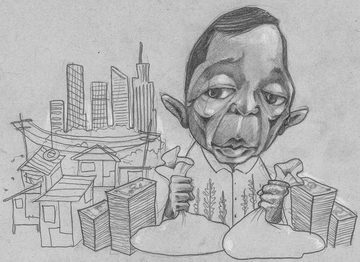
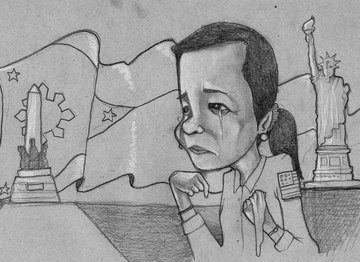
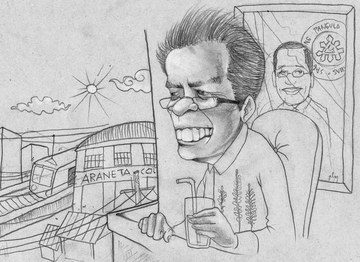
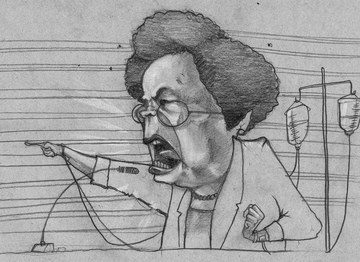
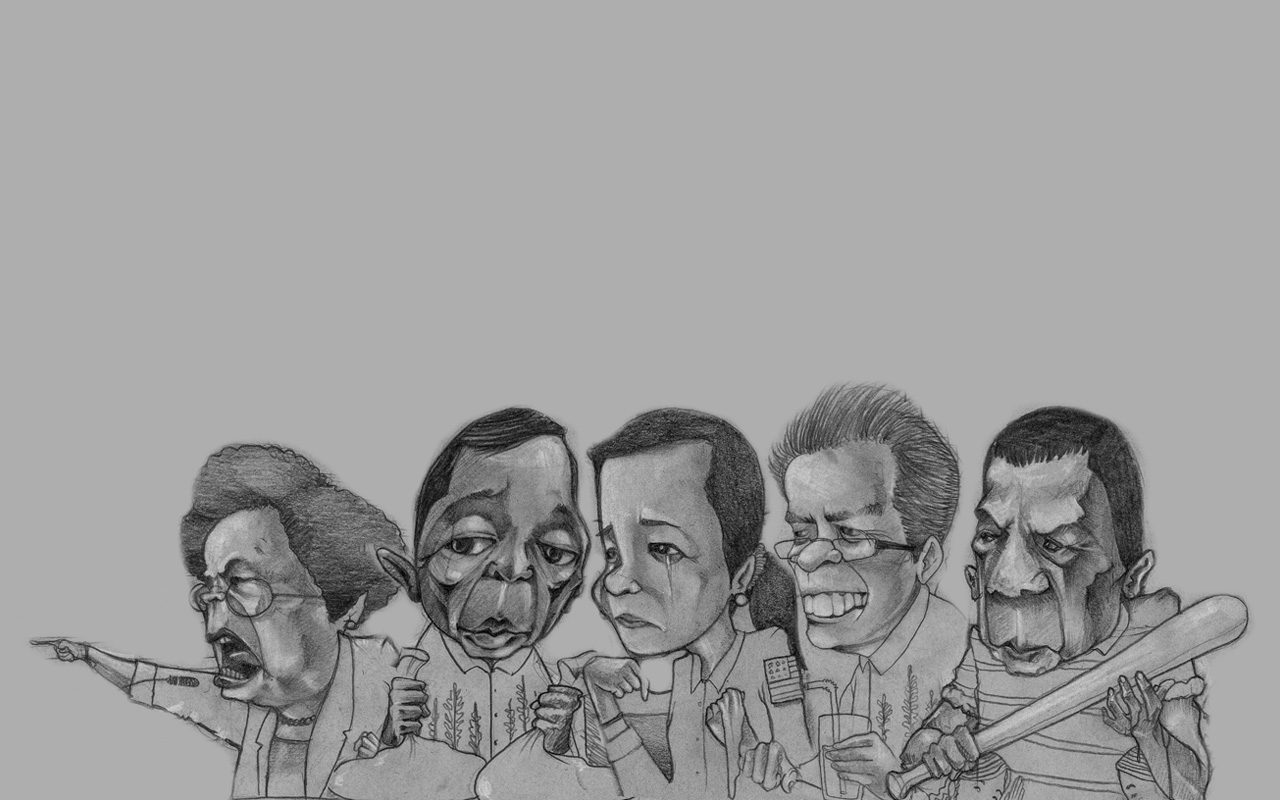



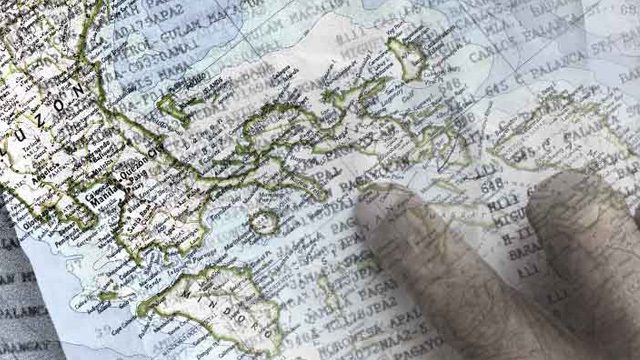
There are no comments yet. Add your comment to start the conversation.